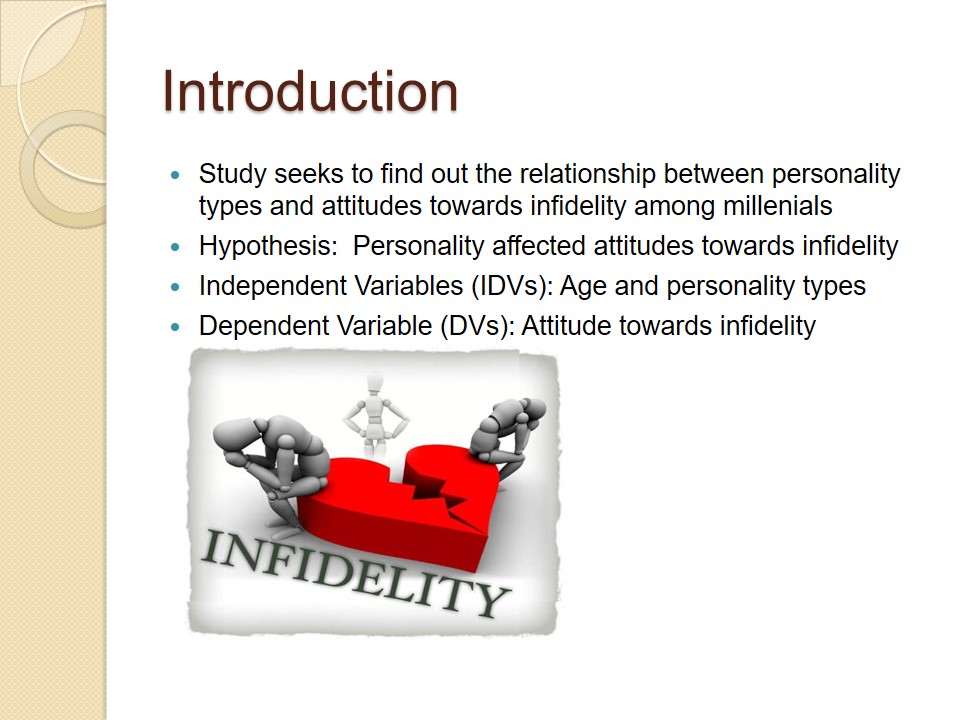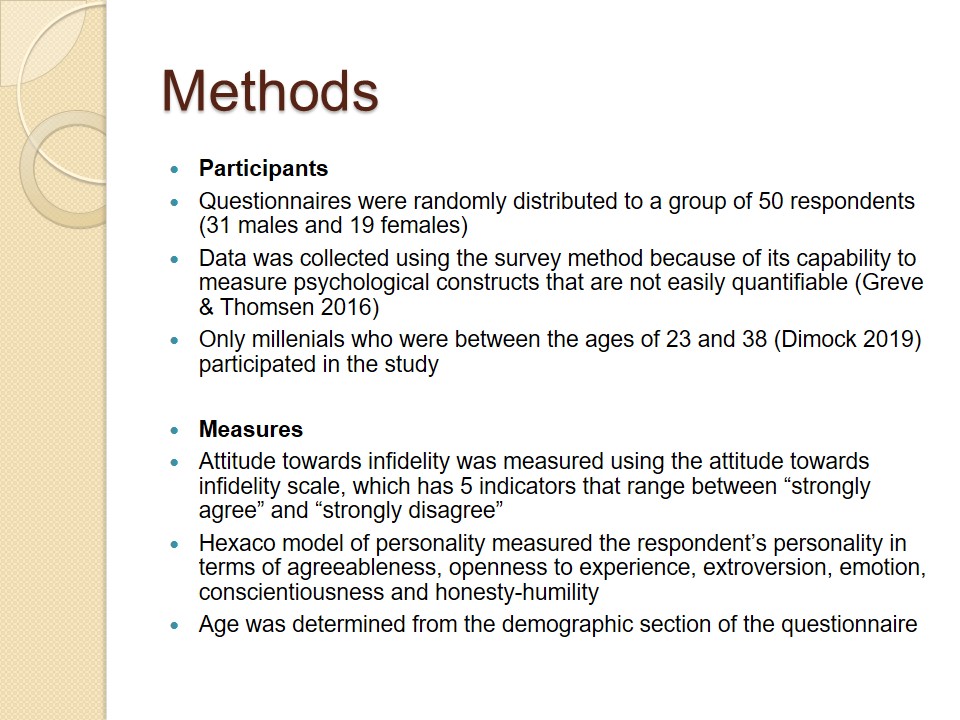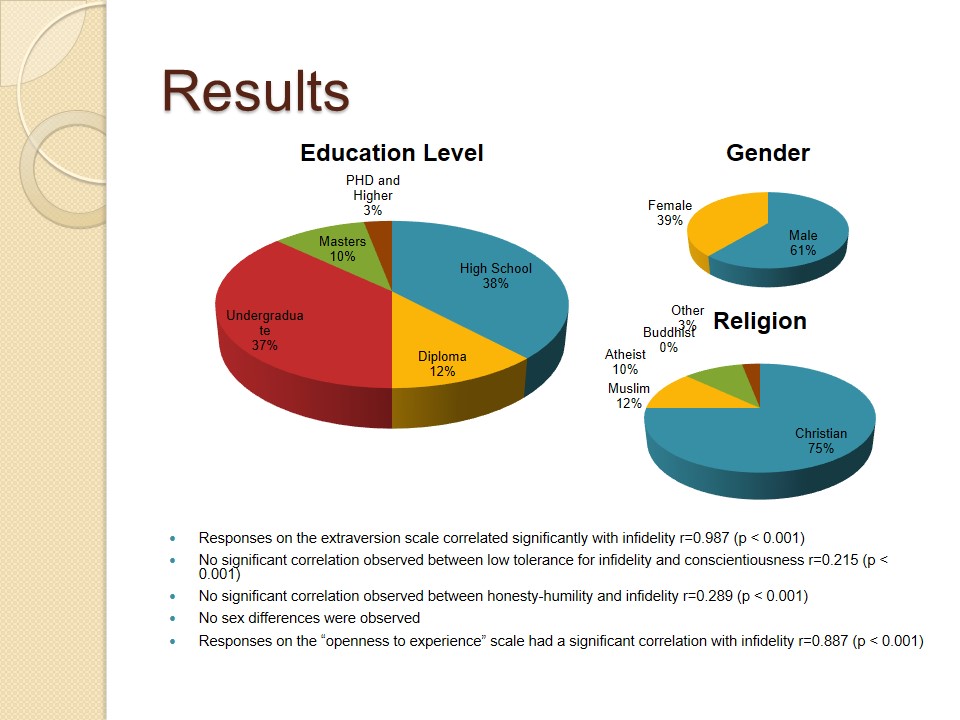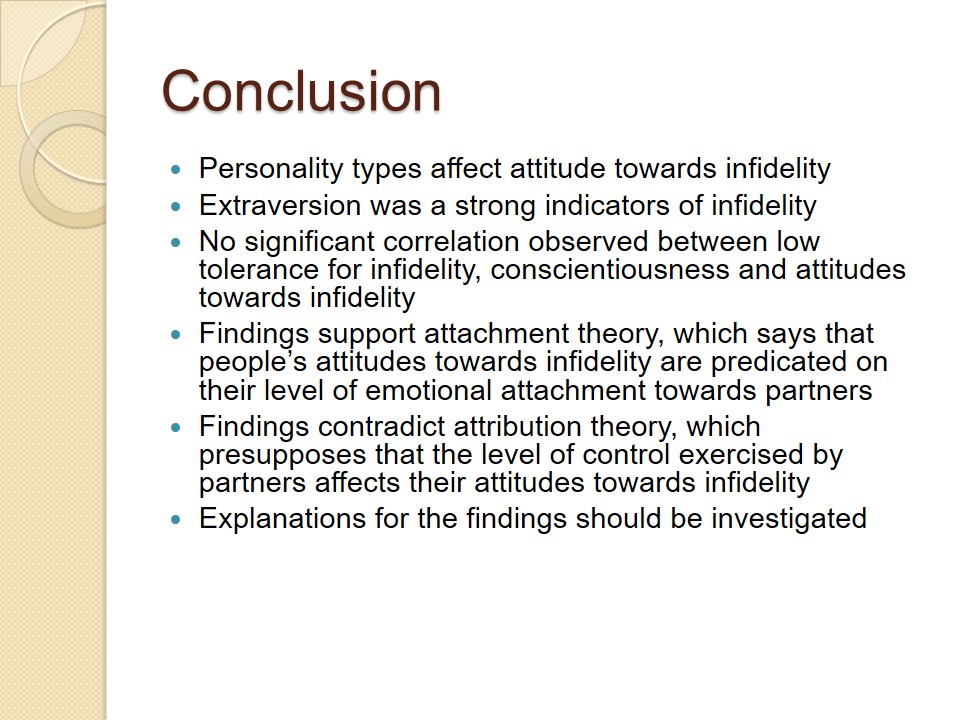Introduction
- Study seeks to find out the relationship between personality types and attitudes towards infidelity among millenials.
- Hypothesis: Personality affected attitudes towards infidelity.
- Independent Variables (IDVs): Age and personality types.
- Dependent Variable (DVs): Attitude towards infidelity.

Methods
- Participants:
- Questionnaires were randomly distributed to a group of 50 respondents (31 males and 19 females).
- Data was collected using the survey method because of its capability to measure psychological constructs that are not easily quantifiable (Greve & Thomsen 2016).
- Only millenials who were between the ages of 23 and 38 (Dimock 2019) participated in the study.
- Measures:
- Attitude towards infidelity was measured using the attitude towards infidelity scale, which has 5 indicators that range between “strongly agree” and “strongly disagree”.
- Hexaco model of personality measured the respondent’s personality in terms of agreeableness, openness to experience, extroversion, emotion, conscientiousness and honesty-humility.
- Age was determined from the demographic section of the questionnaire.

Results
- Responses on the extraversion scale correlated significantly with infidelity r=0.987 (p < 0.001).
- No significant correlation observed between low tolerance for infidelity and conscientiousness r=0.215 (p < 0.001).
- No significant correlation observed between honesty-humility and infidelity r=0.289 (p < 0.001).
- No sex differences were observed.
- Responses on the “openness to experience” scale had a significant correlation with infidelity r=0.887 (p < 0.001).

Conclusion
- Personality types affect attitude towards infidelity.
- Extraversion was a strong indicators of infidelity.
- No significant correlation observed between low tolerance for infidelity, conscientiousness and attitudes towards infidelity.
- Findings support attachment theory, which says that people’s attitudes towards infidelity are predicated on their level of emotional attachment towards partners.
- Findings contradict attribution theory, which presupposes that the level of control exercised by partners affects their attitudes towards infidelity.
- Explanations for the findings should be investigated.

Reference List
Dimock, M 2019, Defining generations: where millennials end and generation z begins. Web.
Greve, W & Thomsen, T 2016, ‘Evolutionary advantages of free play during childhood’, Evolutionary Psychology, vol. 14, no. 4, pp. 1-10.